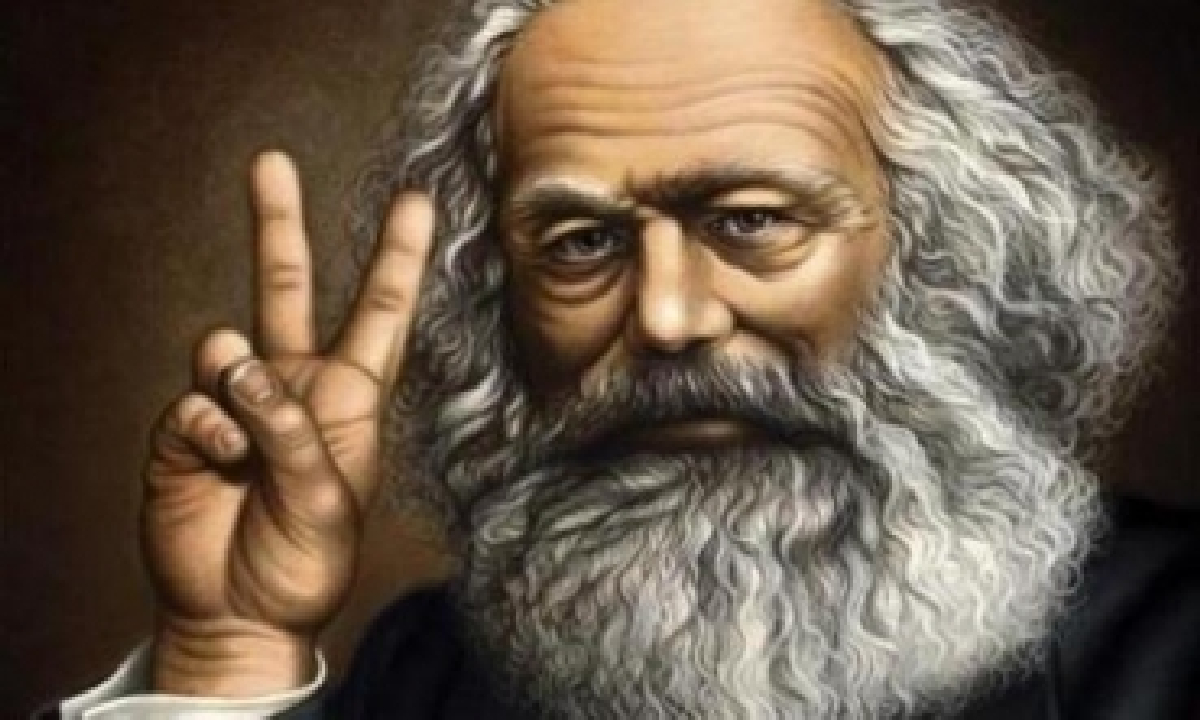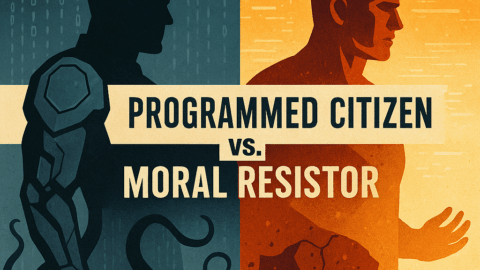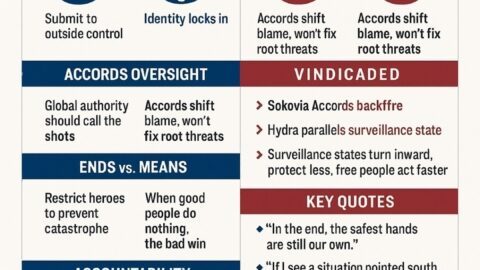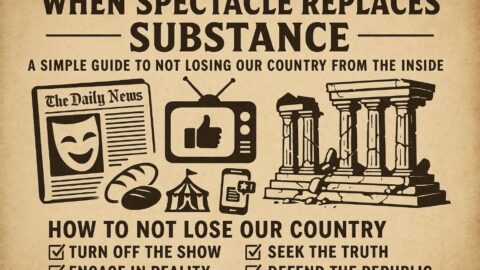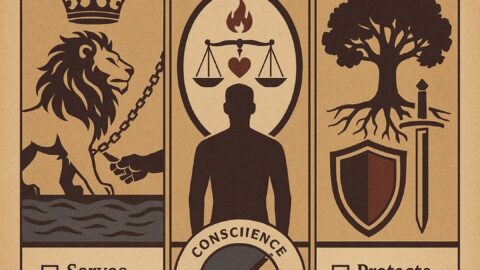Freedom can sometimes be best understood by understanding its opposite. Well, you might ask, what is the opposite of freedom? This article is an attempt to explain.
Note: The author wishes to make it clear that even though this series is about communism that communism itself is just one arm of a much bigger conspiracy. It is also an ideology in which men believe. And it is a conspiracy in which men participate. The series will concentrate mostly on the ideology not so much the conspiratorial. Future series are planned about other ideologies and/or conspiracies.
Over forty years ago now, former U.S. Secretary of Agriculture Ezra Taft Benson and Apostle of the Church of Jesus Christ of Latter-day Saints, made a remarkable statement regarding freedoms opposite. Here are his remarks:
“Whenever the God of Heaven reveals His gospel to mankind, Satan, the archenemy to Christ, introduces a counterfeit. . . Communism introduced into the world a substitute for true religion, It is a counterfeit of the gospel plan . . . Today, we are in the battle for the bodies and souls of man. It is a battle between two opposing systems: freedom and slavery, Christ and Anti-Christ . . .“
Ezra Taft Benson, “A Witness and a Warning,” Ensign, Nov. 1979, 31
Then, Marion G. Romney, in the 1st Presidency of the Church of Jesus Christ of Latter-day Saints, in the September 1979 Church Magazine Ensign, wrote:
“Communism is Satan’s counterfeit for the gospel plan, and . . . it is an avowed enemy of the God of the land.”
Marion G. Romney was quoted by Ezra Taft Benson, CR, Oct. 1979; Ensign, Nov 1979, pgs. 43-47
Why did Ezra Taft Benson and Marion G. Romney consider Communism as a “substitute for true religion” and the “counterfeit of the gospel plan?” What prophetic insight did they have which would move them to make such striking statements?
Hints at Communism’s true character, not as merely being atheistic but as an actual Anti-Christ power can be glimpsed by looking into the writings of its founder–Karl Marx. In several poems he wrote about his allegiance to Satan. In a poem entitled, “The Pale Maiden,” Marx wrote:
Thus, heaven I’ve forfeited, I know it full well. My soul, once true to God, Is chosen for hell.
In a poem entitled, “The Player,” Marx wrote:
The hellish vapors rise and fill the brain, Till I go mad and my heart is utterly changed. See this sword? The prince of darkness sold it to me. For me he beats the time and gives the signs. Ever more boldly I play the dance of death.
In another poem, he titled, “Invocation of One in Despair,” Marx declares a war of personal revenge on God:
So, a god has snatched from me my all In the curse and rack of destiny. All his worlds are gone beyond recall Nothing but revenge is left for me. I shall build my throne high overhead, Cold, tremendous shall its summit be. For its bulwark, superstitious dreads. For its marshal, blackest agony….Then I will be able to walk triumphantly, like a god, through the ruins of their kingdom. Every word of mine is fire and action. My breast is equal to that of the creator.
Finally, in the same poem Marx wrote:
I wish to avenge myself against the One who rules above.
What a hellish beginning to a philosophy, a false religion, a perfect counterfeit to the “gospel plan” which some estimates indicate have killed upwards of three hundred million people (See for instance the books, The Black Book Of Communism or Harvest of Sorrow, both by Robert Conquest).
But what, you may ask, gives Communism its character as a counterfeit religion? A philosophy that would be appealing enough so as to replace God in the minds of its
believers?
Apocalyptic vision
Communism’s philosophy of dialectical and historical materialism gives its believers an apocalyptic vision and a sense of “spiritual” sacrifice and commitment. As a primer from an unknown author on Marxist philosophy explained it:
Historical materialism has a very important role. In the early years of Christianity, the Christians lived with the feeling that at any moment Christ might return and the world may end. This apocalyptic feeling gave fervor to early Christianity. Communism also shares that kind of apocalyptic vision. Historical materialism teaches people that we are now in the last days of history; we are the great turning point. The entire history up to this point is just pre-history, and we are going to begin history when we begin communism. Furthermore, it argues that communism is a historical inevitability. You can try to stop it, you can destroy yourself trying to stop it, but you cannot stop communism.
Causa Institute, Introduction to the CAUSA Worldview, pg. 71
This primer then explained why communism gives its believers such a feeling of “religious” fervor and commitment:
Why was it that the war [Vietnam] was lost? Mao Tse Tung once said, ‘Weapons are important, but they are not the decisive factor. Man is the decisive factor.’ During the war in Vietnam, the men of our nation lacked a purpose to fight. The lyrics of a popular song went, ‘And it’s one, two, three. What are we fighting for? Don’t ask me, I don’t give a damn. Next stop is Vietnam.’
This attitude stands in stark contrast to that of the communists. When the Chinese Communists occupied Peking after years of battling the forces of Chiang Kai Shek, stories began to appear about the attitude of Mao’s soldiers. One story concerned participants on the “long march” who had nothing to eat. Supposedly those soldiers went to Mao Tse Tung explaining their situation. Mao replied, “Cook the leather of your shoes and eat it.” This is what they allegedly did. When those troops finally marched victoriously into Peking, Mao gathered them and said, “Do not think that your lives will now be easier. They will not. But I promise you one thing. The lives of your children will be easier.”
What inspired people to live at such a level of sacrifice and commitment? What gave them that kind of determination? It was the Marxist ideology. Marxist ideology gives a dream and the steps to realize that dream. Many people attribute the deaths and sufferings of communism to Stalinism, but Lenin in State and Revolution used Marx’s writings to prove that brutal “means” were ideologically necessary in order to achieve the “end.” the “end” was the Marxist dream.
The God That Failed, Richard Crossman, ed., New York, Harper and Row, 1949, p. 173.
The Marxist dream has a mystical, religious quality. It has the ability to captivate people and to fill them with ideals and hopes of an almost religious character. In 1935, French writer Andre Gide, speaking of his experience with Marxism, said:
“My conversion is like a faith. All my being is directed to a single goal. In the deplorable state of the modern world, the plan of the Soviet Union seems to constitute the salvation of humanity.”In his final letter to his parents before his death, Che Guevarra communicated that same kind of ideal:
My Marxism has taken root within me and been purified. I believe in armed struggle as the only solution to those who wish to liberate themselves, and I am faithful to my beliefs.
Che Guevarra Speaks, p. 142.Marxism and its promises have been able to ignite people throughout the world with the conviction that ultimately a good and ethical world will emerge if they are willing to fight and sacrifice today. In a world which is devoid of God and His Gospel is it any wonder why Communism attracts and holds so many followers? Is it any wonder, then, that Ezra Taft Benson called Communism a “counterfeit of the gospel plan” and a “substitute for true religion?”
Alienation
But this is barely the beginning. There is a lot more to the story.
In the Gospel view, because of the fall of Adam, Man is cutoff and separated from
God, has become spiritually “dead” and is thus alienated from God and spiritual things. To liberate man from the fall, an At-One-Ment is needed, to bring us into unity with God and the ability to achieve total freedom. This At-One-Ment is provided for us by a Savior, Jesus Christ.Marx, on the other hand, has it inverted. He claims that man is cutoff not from God but “reality.” Man, according to Marx, invents God and religion as a substitute for relations with the real world (Causa, p. 53.). To Marx, religion was “the fantastic realization of the human being inasmuch as the human being possesses no true reality” (Causa, p. 54.). Furthermore, Marx claims that man, in this condition, “has lost himself; been alienated. . . [and] is not a real species being” ( Marx, “On The Jewish Question”, Marx Engels Collected Works, Vol 3, p. 159).
Furthermore, according to Marx, “Labor” takes the place of God. Frederich Engels, an associate of Marx, wrote that man is a highly developed animal which has evolved as a consequence of interaction with his material environment. This interaction has taken the form of labor. Through labor, man has developed the ability to communicate and the capacity to reason. The ape became man through labor, and it is labor which distinguishes man from ape. In Marxian theory then, labor replaces God as the creator of humankind, Engels writing that:
Labor . . . is the prime basic condition for all human existence, and this is to such an extent that, in a sense, we have to say that labor created man himself.
Marx and Engels, “The Holy Family”, Marx Engels Collected Works, Vol 4, p. 36Getting back to the idea of alienation, Marx develops this theory even further. In his work, Economic and Philosophic Manuscripts of 1844, he described four types of alienation:
- Alienation of the laborer from the product of his labor. Whatever a man produces under the capitalist system is taken from him and becomes the property of the capitalist who hired him. The products of labor are taken then and become “an alien object from which the worker is estranged” (Causa p. 61).
- Alienation of the Laborer from his labor. When a worker works for someone else, “labor for the worker is not his own, but someone else’s.” (Marx, “Economic and Philosophic Manuscripts of 1844?” Marx Engels Collected Works, Vol 3, p. 274.)
- Alienation of the human species. Under the capitalist system man is reduced to labor in order to merely survive and is thus cutoff from the basis of his humanity.
- Alienation of man from man. According to Marx, Capitalism and the “division of labor” has denied man his humanity, he experiences no joy in a man to man relationship.
The solution to alienation, according to Marx, was to change the human condition by abolishing private property and establishing communal ownership–or communism. Only in this manner could man regain his dignity by overcoming this type of alienation and reestablishing his ties to the rest of humanity. Marx then, in an effort to overthrew God, made man the measure of all things.
Additionally, Marx held that is was economic alienation, in the form of private property, which gives rise to the notion of God and religious alienation. In order to truly “liberate” man, according to Marx, you must begin by cutting yourself off from your [to him] invented God which is preventing you from contact with reality and to accomplish this you must begin with the destruction of private property, since the ultimate basis of alienation was the underlying and unjust economic structure. [as a side note regarding the concept of “liberation,” it is worthy of note to point out the many Marxist-Leninist “liberation” movements in the world, such as the Palestine Liberation Organization (PLO), Afghanistan Liberation Organization, and many others too numerous to mention. A good fifty plus year-old primer on this subject can be had by reading chapters 1, 2 and 3 of the book, It’s Very Simple: The True Story of Civil Rights, by Alan Stang]
By overthrowing God in this manner man is alienated not from God but from a vague “reality” that man has been harmed because the “products of labor” have been denied him. All of which harbors resentment and feelings of hatred.
Labor means everything to a communist. Labor replaces God in realizing the “ideal man” while it is the Gospel view that it is a belief in God and that man can progress towards becoming like God that matters.
Righteousness
The Communists believe in demanding and developing characters of “righteousness,” that is, Marxist-Leninist righteousness. In the book, How To Be A Good Communist, Liu Shao-chi, past President of Communist China and brilliant Marxist theoretical writer says:
But if sacrifice has to made for the Party, for class and national liberation, that is, for the emancipation of mankind, for social evolution and for the interests of the greatest majority of mankind embracing countless millions of people, countless Communist Party members will face death with equanimity and make any sacrifice without the slightest hesitation. To the majority of Communist Party members, it will be accepted as a matter of course ‘to lay down one’s life for a noble cause’ or ‘to die for righteousness’ if necessary.
Liu Shao-chi, How To Be A Good Communist, Peking: Foreign Language Press, pp. 55-56.
But what is this righteousness for which they are ready to die? The type of conduct that will advance Communist world conquest.
There are many other comparisons and contrasts to be made between Communism and Christianity. Such as:
Prometheus and the Humanist View
Marx viewed himself as the embodiment of Prometheus (in Greek mythology Prometheus stole fire from the gods and gave it to man. As punishment Prometheus was chained to a rock and had his liver eaten daily by a bird of prey.) Many early Communist posters characterized Marx chained to a rock, as was Prometheus. By deifying humanity man became the measure of all things rather than God.
Law
Karl Marx is credited with “discovering” the dialectical laws governing class struggle and the war with capitalism. On the other hand according to the Christian Gospel there are two forms of law: discovered law (the so-called laws of nature) and revealed law (the word of God as revealed to his Prophets).
Morality
Communists believe in dialectical materialism, which at its root simply means there is struggle, conflict, and destruction until the perfect Communist Society is established and any action which helps to propel society towards that eventuality is moral. As the Marxist Afanasayev noted:
From the point of view of Communist morality, that which promotes the movement of society towards communism is moral.
V. G. Afanasayev, Marxist Philosophy, USSR, Progress Publishers.
This Marxist idea of morality is certainly not the Christian morality–that of obedience to God and his laws.
Additionally, the Marxist founder of Planned Parenthood, Margaret Sanger, wrote in her book, The Pivot of Civilization, that the drama of history was played out as a struggle to free bodies and minds from self-imposed constraints of morality, or the “cruel morality of self-denial and sin.” Sexual liberation was touted by her as the way to find “inner peace and security and beauty” and the way to conquer societies faults was to “remove the constraints and prohibitions which do not hinder the release of inner energies [sexual energy, according to Sanger],” for then “most of the larger evils of society will perish.” Marxism’s vendetta then, is to portray sexual liberation, in the words of Nancy Pearcy, a Christian and Marxist critic, as a “moral crusade, in which Christian morality is the enemy, and opposition to it is a heroic moral stance.”
Struggle
As previously stated, to a Marxist there is a war going on. A struggle and conflict, and if necessary, wars of liberation. In the Christian concept the struggle is between good and evil, against Satan and the flesh.
Creator
Physical matter, according to Marx is the great creator. Or, as Lenin put it:
We maybe regard the material and cosmic world as the supreme being, the cause of all causes, the creator of heaven and earth
Quite a contrast to the Christian view of creation, God the Father, “who created all things by Jesus Christ” (Ephesians 3:9).
Savior or Messiah
Under Marx’s view of the world the Savior is the proletariat. Lenin modified this by making the dictatorship of the proletariat the savior of mankind. Of course, the gospel view is that Jesus Christ is the Savior of the world–”I, even I, am the Lord, and beside me there is no Savior” (Isaiah 43:11).
Peace
Peace will only be established, according to the Marxist worldview, when capitalism is overthrown and abolished, and the “paradisaical state,” envisioned by Marx–the primitive communal society–is finally established and the world enjoys a classless society. The Gospel view of peace, on the other hand, is only obtained by becoming a peaceable follower of Christ, so that we may one day enter into the “rest of the Lord.”
Both Communism and the Gospel of Jesus Christ share a view of a Paradisical state:
- Marx’s primitive communal society, or when communism if finally established and the world enjoys a classless society.
- The garden of Eden and the world in general enjoyed a paradisaical glory before the fall.
Both share a view of “reality”:
- Marx: Matter is real.
- Gospel: Reality is of a dual nature, both matter and spirit.
Both share a view of “evil”:
- Marx: Evil consists of the bourgeoisie and capitalist system.
- Gospel: Evil is disobedience to God. Evil is the word “live” turned around, and those who commit evil kill themselves spiritually.
Both share a view of missionary work:
- Marx: The Communist Party is the vanguard of salvation, and has a worldwide mission and vision.
- Gospel: Missionary work is done by the Spirit through members of the Church and scriptures (the Book of Mormon) expressly designed for this purpose. Missionary work also has a worldwide mission and vision. The earth is to be flooded with the Book of Mormon.
Both use “sacred” writings:
- Marx: The works of Marx, Engels, Lenin, Stalin, Mao, etc., is where the true doctrine of Marxism is contained.
- Gospel: The Bible, the Book of Mormon, and other ancient and modern works written under the influence of the Holy Ghost.
Both share “Prophetic” heros or types:
- Marx: Marx is equal to Moses, Lenin to Christ. Lenin’s corpse is equivalent to Catholic saint worship.
- Gospel: All of the Prophets of the Bible and Book of Mormon are types of Christ. Every sanctified man will reflect Christ in his character.
Both share a view of “Class”:
- Marx: With the division of mankind into classes ensures that there will be a class struggle. The class struggle will eventually lead to everyone becoming equal.
- Gospel: Salvation is offered freely to all. However, in the Father’s House are many mansions.
Both share a view of Historical Inevitability:
- Marx: Historical Materialism. History is inexorably working its way towards communism and nothing will stand in its way.
- Gospel: God’s plan of history is the working out of a divine chiastic structure, where the end is comparable to the beginning and the beginning to the end. Nothing will hinder the work in its progress.
Both share a view of Paradise on Earth:
- Marx: Worker’s paradise.
- Gospel: Millenial peace and prosperity
Both share a view of the “perfected” man:
- Marx: The Marxist ideal or perfect man.
- Gospel: “Be ye therefore perfect. . .”
Conclusion
Hopefully by now I’ve convinced you of the diabolical nature of Communism and it is in its entirety a complete opposite of Jesus Christ and his Gospel. It is in fact the greatest anti-Christ power in the world today. We should do everything within our power to become informed and “awake” and oppose and stop Communism before it overthrows “the freedom of all lands, nations, and countries . . . and . . . the destruction of all people.” (Moroni 8:25)

